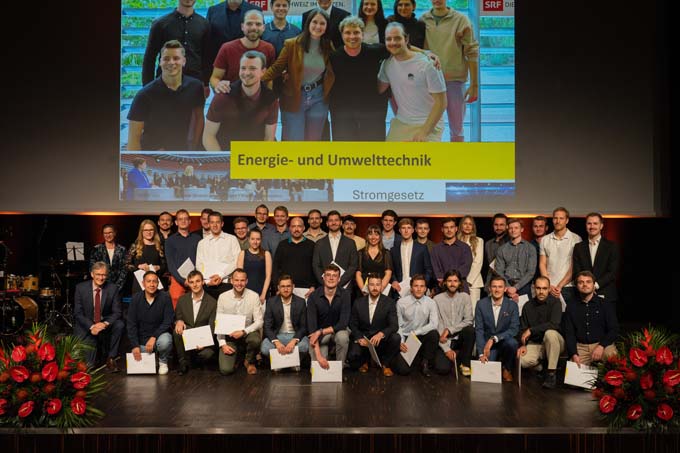The quality process at Muri Hospital
Muri Hospital, a rather small hospital and yet highly specialised, is not only experiencing in times of Corona what it means to exercise and broadly support extreme situations and activities in the name of quality and patient safety.The progress achieved by means of a stringent hygiene plan results in the health of all. Andrea Heiermeier, Head of Quality and Process Management, explains what makes Muri District Hospital (AG) safer.

Ms. Heiermeier, how do you maintain permanent quality in times of the COVID pandemic? We practice, practice, practice! We train all employees; we have standardized procedures not only for extreme times.
Particularly in our new areas, such as the COVID-19 clarification ward and then also in isolation, we observe and visualise individual processes. In areas where employees work under high pressure, it is important to develop good processes and to practice them again and again so that they become second nature - this provides security and leads to fewer errors even in stressful situations.
Hygiene measures in the public sphere as well as in clinics are causing controversy. Which hygiene issues are you focusing on?
As a rule, keeping a distance, consistent hand hygiene, not touching one's face and wearing masks, if the distance cannot be kept, are sufficient for the care measures. With COVID-19 measures, we are of course more cautious.
In what way?
In daily operations, we separate patients with suspected COVID-19 from those without symptoms of the disease by operating a separate emergency ward and also a COVID ward during the acute phase of illnesses. If the patient has COVID, they are isolated and staff wear protective clothing (including masks, gloves, etc.) when entering the room for even simple contact with ill patients. This (disposable) clothing is then disposed of.
How important are official guidelines for the maintenance of medical devices - especially if they are not used on a daily basis?
Every medical device is serviced at regular intervals, regardless of how often it is used. According to the Medical Devices Ordinance, it may not be used without regular maintenance. This is completely independent of whether an epidemic or something else is currently circulating.
It is said that a lot of medical equipment was ordered because of the Corona crisis but then not used. What is the situation like in Muri?
We have partially received loan equipment from the canton of Aargau in order to be able to cope with high patient volumes. The consumables required for operation were only partially available. Masks, disinfectants, etc. were also partly obtained from the canton. Since the danger of a second Corona wave has not been averted, these goods may still be needed in larger quantities in the near future.
Hospital-acquired infections are also a recurring topic. So-called nosocomial infections are also a problem in industrialised countries. Certainly, careless people can transmit viruses - but what about pathogens on hospital equipment?
Each department has a disinfection and hygiene plan for each surface and each device (editor's note: see graphic), in which it is specified how often a surface must be cleaned with which agent. We have special surface cleaning agents for this purpose. The implementation is controlled by the person responsible for hygiene.
Are there any other risks discussed at all in the current situation?
Of course. For the critical areas IPS, OPS anyway, but also in the rescue service etc.. Corresponding detailed work instructions are standard in hospitals today and are also regularly checked by us through audits. If necessary, measures are then taken or processes optimised.
What are the current focal points of quality management at Muri Hospital?
We process the feedback from our patients or their relatives. Near-miss incidents, so-called CIRS reports, continue to be analysed, processes and solutions continue to be developed and necessary documents such as work instructions are made available. Finally, training and implementation checks are also carried out at all levels.
Keyword "Awareness" in extreme times - a topic in internal training?
We are currently in the process of revising and making appropriate documents available in a structured manner for a potential second COVID 19 wave.
Have the challenges for your employees changed since the COVID-19 outbreak?
During the Corona period, relatives were not allowed to visit the hospital and the emergency department, so that the recording of patients' health problems had to be organised differently and with greater effort. Patients sometimes showed a lack of understanding of the different cantonal regulations on visiting bans. And last but not least, every member of staff was naturally concerned about how many patients were really seriously ill and had to be treated.
Are you getting any other feedback on patient surveys this year?
Yes, of course. It is also not necessarily easy to explain plausibly to relatives or partners of seriously ill or demented patients that they are not allowed to visit in exceptional cases. Many elderly patients were sad and disappointed during the lockdown - similar to nursing homes - that their relatives were not allowed to visit them.
However, we have also received a lot of praise and encouragement from all sides.
Your assessment at the end of the interview: Are hospitals cleaner today than they used to be?
Actually, it is. Today's disinfectants are more effective and are gentler on surfaces in the long term. The frequency of cleaning today is not necessarily higher than in the past, but we have more modern means to clean the rooms, the equipment and the floors.









